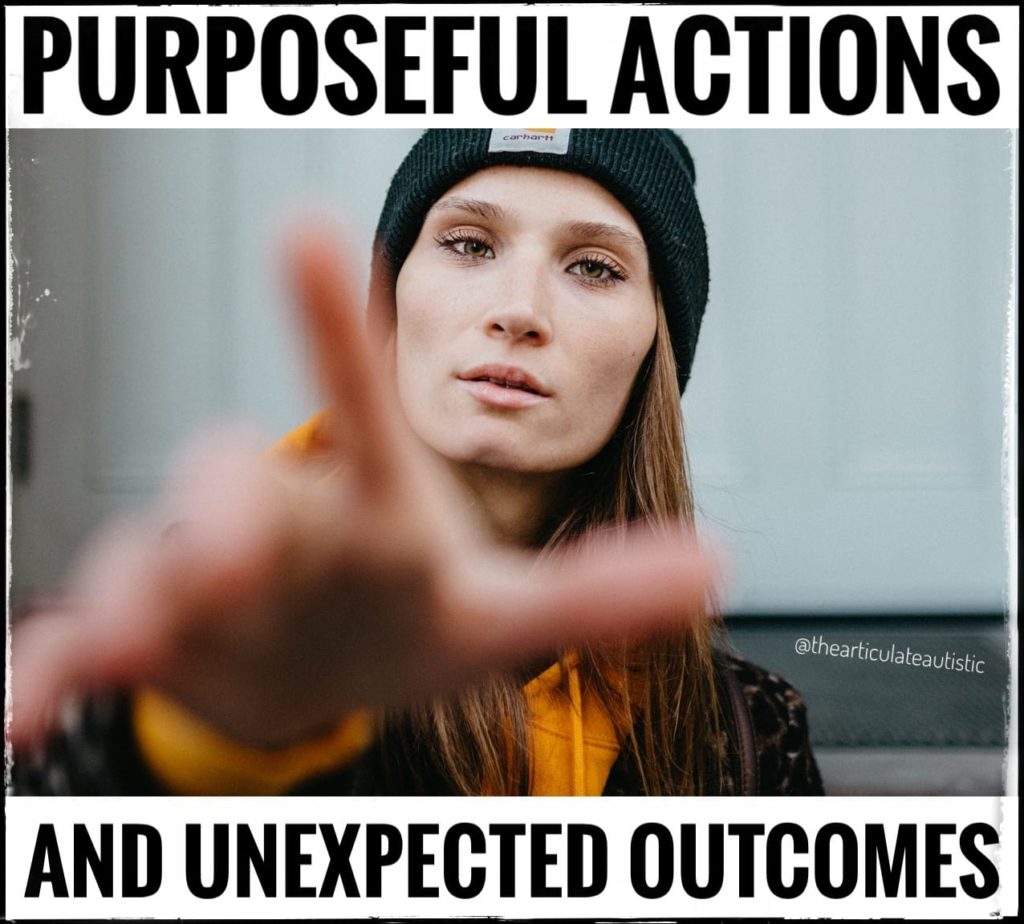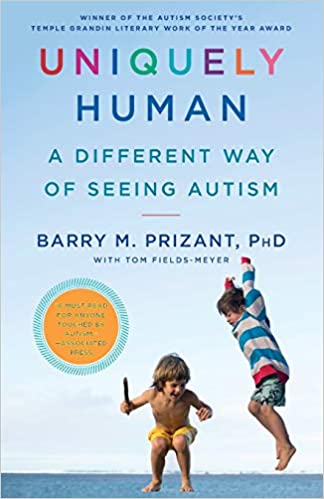Purposeful Actions and Unexpected Outcomes – A Common and Confusing Autistic Experience

“You did that on purpose!”
I’m willing to bet almost every autistic or otherwise neurodivergent person just cringed at that sentence.
So many of us have heard it ad nauseam and stood in dumbfounded shock while angry people berated us, yelled at us, and peppered us with questions.
To this accusation I say now, “Yes. I absolutely did it on purpose BUT, it was supposed to have an entirely different outcome.”
For example, did I ask questions on purpose after somebody told me to do something? Yes. Was it to irritate others or mock authority? Of course not!
(Article continues below.)
The best way to improve communication with your autistic loved one is to understand how your autistic loved one’s mind works! Intentions, motivations, and personal expressions (facial expressions or lack thereof, body language, etc.), are often quite different in autistic people than they are in neurotypical people.
Experience a better understanding of your autistic loved one by reading books about life from an autistic perspective as well as stories that feature autistic characters. You’ll have so many “Ah ha!” moments and start seeing your autistic loved one in a different light (and you’ll have a better understanding of their behaviors, which you may have been misinterpreting up until now).
Books I recommend for a better understanding of your autistic loved one:
That’s not a thought that would have even entered my autistic mind before someone explained to me that there were other purposes to asking questions other than information gathering. Was I attempting to fully understand so as to perform said task to the letter and avoid punishment? Emphatically, yes!
Did I walk out of rooms with lots of people and go sit by myself on purpose? Absolutely! Did I do it to be rude? No. I didn’t even understand at the time that the absence of an action could be taken as rudeness. Did I do it to get away from overwhelming and confusing sounds? Yes.
(There are hundreds of others, but I’m blanking on them all right now, but you get the idea…I hope.)
Yes, your autistic loved one may 100% do whatever it is they’re doing on purpose, but it doesn’t mean that the purpose is the same in our minds as it is in yours.
As I’ve advised before, make observations when you don’t understand your autistic loved one’s words or actions.
For example:
“I notice you walked out of the room as soon as Carol arrived. Usually when people walk out of a room when another person walks in, it means they don’t like them. Is there something about Carol you don’t like?”
You may get an answer like this:
“Carol wears too much perfume. It makes me sneeze.”
Now, even that comment, in and of itself, could be taken as an insult to non-autistic people, but it isn’t. It’s a 100% literal statement of fact. Carol wears too much perfume. My autistic nose is too sensitive to it, and I have to get away before I have a sneezing fit and make everybody stare at me like last time.
There is no hidden agenda, no ulterior motive, no subtle dig at Carol’s choice of signature scent, there is just discomfort and the need for relief.
That’s it.
Follow me on Instagram.
Want downloadable, PDF-format copies of these blog posts to print and use with your loved ones or small class? Click here to become a Patreon supporter!







2 Responses
[…] This post is a direct follow-up to yesterday’s post about purposeful action but an outcome entirely different than what is expected. […]
[…] sometimes, an autistic person will do or say something with the intention of showing affection, and the exact opposite results may occur, confusing the autistic person and irritating the neurotypical person they are trying to show […]